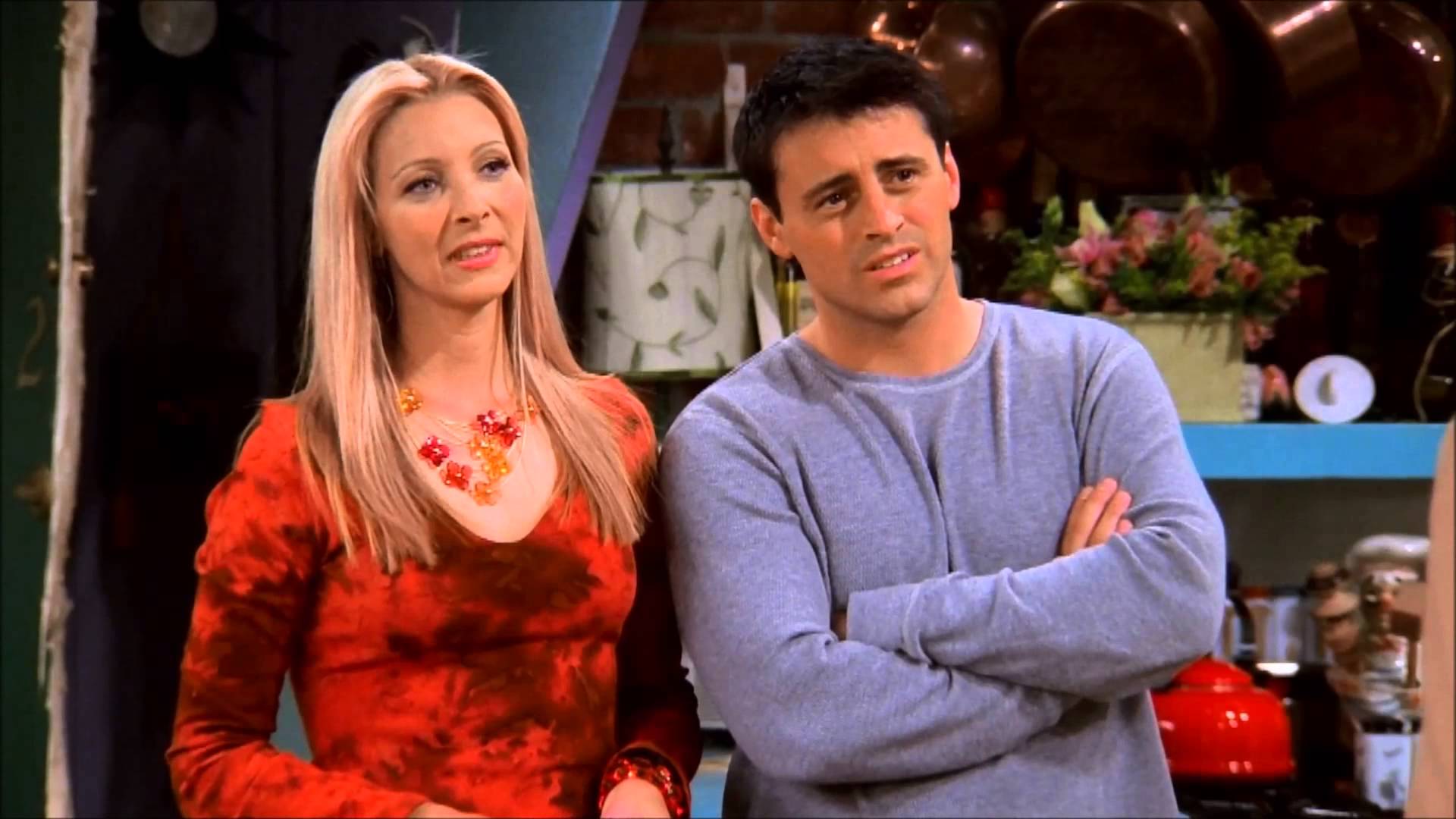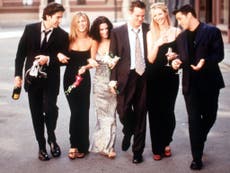Why do we want the six white complainers from Friends back? Because we need the fantasy
Friends is a TV show that never strives for deeper meaning. You're spared having to see Phoebe hustling for welfare when songs about the sickening aroma of cat shit fail to make her enough money to survive day to day

In the ‘90s, TV was brimming with characters that were living in New York without remotely having the funds to do so. From Carrie Bradshaw to Rachel Green, everyone could afford their brownstone or their park view, despite waitressing or spending all of their money on shoes.
We’ll label these shows “aspirational”. But somewhere around the mid ‘00s (we could tie it to the Wall Street crash to be cute), TV became more realistic and, since then, shows have seemed darker, like a mirror is being held up to our own grotty bedsits and dreadful roommates, but with better make-up and hair.
For instance, Girls is way more realistic than Sex and the City ever was, showing what it’s really like to finish college, have absolutely no money, and live somewhere awful. And 2 Broke Girls might be a comedy, but its protagonists are in a pretty bleak situation.
So, it's no surprise that so many of us surfaced from our depressed duvet caves on Wednesday shrieking in joy at the news that the cast of Friends (or “six white complainers” as Unbreakable Kimmy Schmidt so astutely named it) are finally reuniting, in a two hour special honouring legendary TV director James Burrows. Although, Matthew Perry won’t be there because he’s in London with me rehearsing his play The End of Longing.
For many of us who grew up watching Friends, the show was a utopian glimpse into our adult futures, offering the tantalising promise of beautiful apartments with charismatic buddies, terrible jobs which could afford darling wardrobes, and the preposterous proposition that struggling through with your best friends by your side was all a twenty-something needed to survive.
And why? Because one day, presumably, we'd all be snuggled together up on an oversized coffee shop couch howling into our pumpkin lattes about how poor and pathetic we were back in our twenties. What a lark!
The harrowing truth of it all is that we love Friends because it's a fantasy. You never have to see, for instance, the financial hardship that Joey must have been experiencing between acting jobs, or how on earth it was that Chandler was able to pay his roommate’s rent for so long without slipping into financial ruin himself.
You're also spared having to see Phoebe hustling for welfare when both her masseuse business and songs about the sickening aroma of cat shit fail to make her enough money to survive day to day, never mind keep a roof over her head.
For the rest of us struggling schlubs, this is gold dust. Watching Friends is like slipping into an alternate reality where nobody struggles, jobs pay and they pay well, and you can achieve any and all of your dreams by being an affably neurotic basket case at all times. Give me the keys to a quirkily decorated, obscenely spacious apartment in that reality, please.
With news that the Friends actors (minus Matthew Perry) may actually be in the same room together, even though they won’t be in character, fans are majorly excited because of what it might mean.
It’s the promise of a TV show that isn’t striving for a deeper meaning. A series which rejects the harsh reality of everyday life, turning a person’s darkest moments into comedic potential. It’s the absence of incredibly awkward sex scenes that are uncomfortable to watch because they remind us that real life isn’t pretty.
While it’s great that shows starring Adam Driver exist, maybe the fact that Girls is due to end in 2017 is a sign. We’re beckoning in the juju of the past, intent on resurrecting a dreamlike simplicity we long for.
Sure, Friends was often problematic in the way it portrayed gay people, trans people, people of any races that aren’t white, anyone over the age of 35 and humans who happen to be women. But those were simpler times, my friends, simpler times.
Amy and Amy run the popular culture blog Clarissa Explains Fuck All together



Join our commenting forum
Join thought-provoking conversations, follow other Independent readers and see their replies